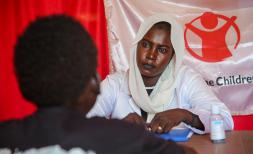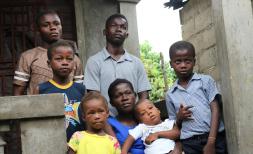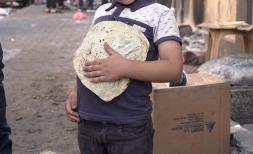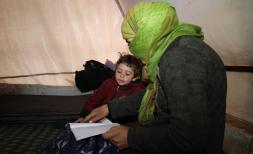Finance Ministers, Global Health Needs You
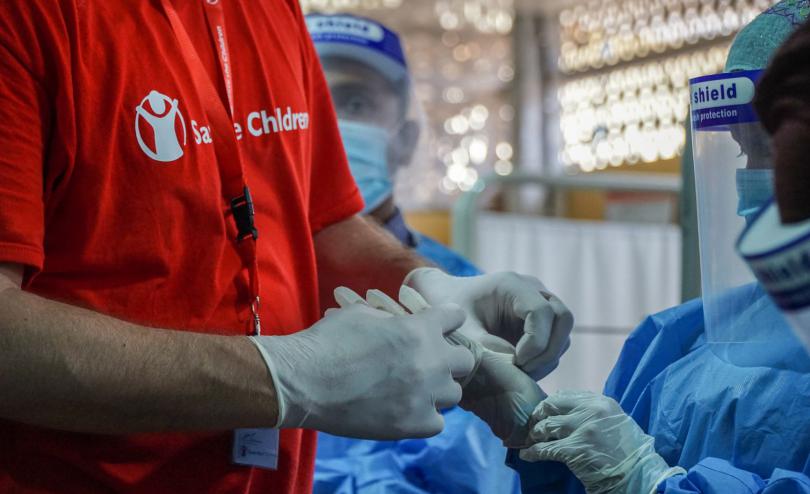
Global public health, we have discovered, really is all of our responsibility.
Never more than during the current pandemic has it been so stark how much responsibility sits with Finance Ministers to ensure resources are allocated to respond to COVID-19 and its impacts on society, including addressing some of the most pressing health needs.
The coronavirus pandemic as wreaked havoc on countries around the world. Not only has it ravished health systems, but its ripple effect on societies and economies will continue to reverberate for months to come.
This crisis threatens to undo years of crucial development work and the impacts of that will be huge for the most vulnerable - particularly children. Now we have the opportunity to make decisions that will have a lasting impact on a generation of children growing up in such potentially catastrophic times.
G20 Finance Ministers and Sherpas meet this week under some of the most challenging fiscal circumstances. This is a critical moment to take decisions which will impact on health outcomes not only in their own countries but also in low- and middle-income countries.
They will need to make difficult choices; and ensure that the most vulnerable communities around the world are able to access quality health care – for COVID-19 as well as other essential health needs – irrespective of their ability to pay.
This is the only way to ensure health for all, everywhere.
Finance ministers from the world’s largest economies must use this opportunity to invest in health systems to deal with the immediate impact of COVID-19, and its fallout on health and nutrition. While national governments have the core responsibility to deliver health services for their population, and donor governments have a critical role to play to support poorer countries and weak health systems,they must also think about long-term investment to build resilient and accessible health systems that can respond to and withstand shocks while continuing to provide essential services for all.
Impact of COVID-19 on health systems
In May 2020, a study in the Lancet Global Health Journal estimated that an additional 250,000 to 1.2 million children and 12,000 to 57,000 mothers could die over the next six months due to health service disruptions, and an inability to access services and critical care, brought on by COVID-19.
According to the modelling, increased wasting prevalence as a result of malnutrition would contribute to 18–23% of additional child deaths and lack of antibiotics for pneumonia and neonatal sepsis and of oral rehydration solution for diarrhoea could lead to 41% of the additional child deaths. These are stark figures, which should put the threat to women’s and children’s lives at the forefront of any health and fiscal response.
Resources will be needed to ensure mothers and children can access needed health and nutrition services despite the strain on health systems as a result of COVID-19 and the measures being taken to limit its spread.
Health financing and COVID-19
In many low- and middle-income countries if health and nutrition services are not available free at the point of use, people’s ability to access them becomes inextricably linked with family finances.
We know that already 100 million people are still pushed into extreme poverty paying for health care and over 800 million people spend at least 10% of their household budgets to pay for their health care. Many families might not seek health care at all due to a lack of resources.
Recent calculations by Save the Children and UNICEF showed that ‘even before the pandemic hit, 586 million children – almost 1 in 3 children in low- and middle-income countries – were living in families who could not make ends meet.’ Projections for 2020 are even bleaker; this number could increase by 90 to 117 million in 2020 with similar levels expected in 2021. This leaves many families with the impossible choice of deciding between health care or putting food on their table.
This worrying picture comes at a time when we should be seeing governments operationalising their commitments to achieve Universal Health Coverage (UHC), moving towards achieving SDG targets. Publicly financed, equitable health systems, with a strong focus on domestic resource mobilisation, is at the heart of achieving UHC.
We know this is going to be harder than ever for countries given the current economic situation, yet is critically necessary. Initial assessments indicate that while countries may invest heavily in health as an emergency response measure at the beginning of the crisis, as we see tax revenues decrease and debt levels rise, we are likely to subsequently see a decrease in health system investments.
To achieve UHC, financial protection and improved access to health services for the most vulnerable, governments need to increase their domestic health expenditure towards 5% of GDP, through progressive taxation, improving public financial management and procuring strategically.
With GDP expected to shrink across the globe, we need to start thinking more creatively about how to achieve this and what health and finance ministers in high income countries should be doing to support low- and middle-income countries.
What can G20 Finance Ministers do?
With support from G20 Finance Ministers, countries all over the world have the potential to ‘emerge from the COVID-19 crisis with health financing that is fit for the future’. Governments must think differently about health financing, debt relief, prioritisation, and efficiency. It will require a cross-Governmental approach to link health and financing to livelihoods, social protection, and family income support.
With financial constraints in high-income countries as well, there will be an increased role for technical support alongside critical Official Development Assistance (ODA). Finance ministers must ensure they make a transformative investment, supporting countries to increase fiscal space and improve health financing systems, while allowing for flexibilities to meet the needs in the current fiscal climate.
Ahead of this month’s G20 Finance Ministers meeting and the Sherpa Meeting, and in line with Civil Society 20 (C20)’s recommendations for an effective G20 agenda on Finance and Health, we call for:
- G20 countries to support increased sustainable government spending on health to 5% of GDP, prioritising resource allocation to services that are critical, cost effective and reach the most marginalised and deprived.
- Donor Governments to invest at least 0.7% of GNI on ODA, prioritising transformative approaches to health financing, including supporting progressive taxation, debt relief, cross-sector work on financial protection and health, efficiency gains and prioritisation.
- G20 Health and Finance Ministers commit to working more closely together on health financing prioritisation and institutionalise annual joint meetings.
- G20 Finance Ministers and Sherpas prioritise international cooperation to overcome the challenges ahead and achieve sustainable, progressive financing solutions which ensure health really is for all.
